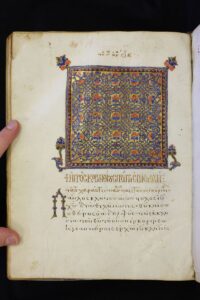Ancient Musical Instruments: “Sounding Brass” and Hellenistic Technology, William Harris, Biblical Archaeology Review (8:1), Jan/Feb 1982.
Ancient acoustical device clarifies Paul’s well-known metaphor
No New Testament passage is better known than Chapter 13 of Paul’s first letter to the Corinthians. Its singular lyrical felicity and its insistence upon love differentiates it from the often practical and pragmatic side of Paul’s mind.
This ode to love begins (in the King James Version)-
“If I speak in the tongues of men and of angels, but have not love, I am become sounding brass or a tinkling cymbal.”
In modern translations we sometimes find “noisy gong”1 instead of “sounding brass.” The Jerusalem Bible has a “gong booming-”
“If I have all the eloquence of men or of angels, but speak without love, I am simply a gong booming or cymbal clashing.”
In the original Greek the words for “sounding brass” or “noisy gong” are chalkos echon; a “cymbal clashing” is kumbalon alalazon.
The cymbalon or kumbalon was a well-known musical instrument of the period. Alalazon is an onomatopoetic word which means re-sounding. It is used several times in the third-century B.C. Greek translation of the Old Testament known as the Septuagint. So we have no difficulty in accepting the translation of a cymbal clashing or clanging or even tinkling.
The other Greek phrase, chalkos echon, translated as “sounding brass” or “noisy gong,” is more difficult.
Read the rest of Ancient Musical Instruments: “Sounding Brass” and Hellenistic Technology in the online Biblical Archaeology Society Library.




